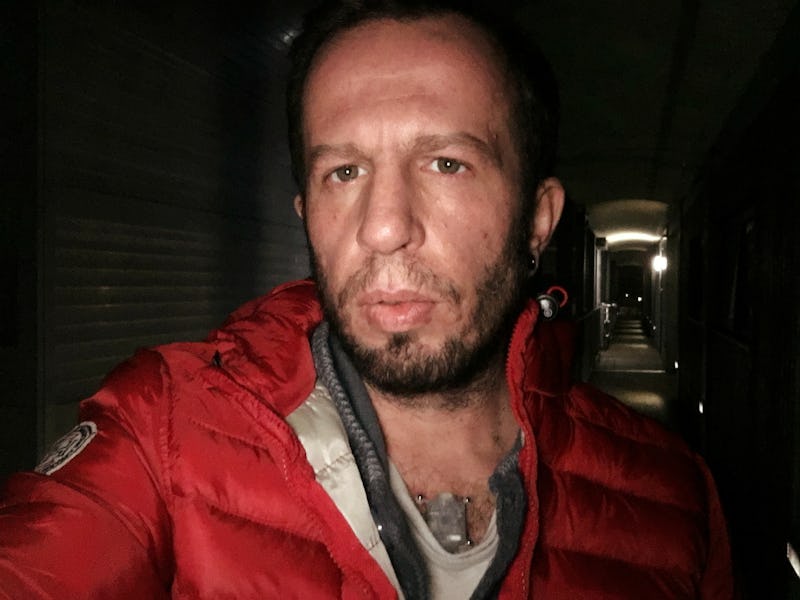Birds, innately, know which direction north is so they can fly during long migrations, but some biohackers are making it so that special sense is no longer just for the birds. The North Sense, an artificial sense organ that vibrates when the user is facing north, is only in use by two people right now, but when it starts shipping in a few months, it will transform the conversation around body modification.
“Around us is an entire universe we don’t perceive,” Liviu Babitz, one of North Sense’s first users, said in a report published Friday. “As we walk down the street there’s radiation, X-rays, infrared and ultraviolet, as well as the electromagnetic field of the planet. So we want to create new senses to become aware of our environment.”
Babitz is the co-founder of Cyborg Nest, the company behind North Sense that’s focused on extending human senses. With the sense no longer bound to birds, Babitz’s early experiences have surprised him. Sometimes, on the London Underground, he’ll be unaware the train is turning until the North Sense buzzes. Attached to his chest by two bars that sit under the skin, the gadget itself is waterproof and charged via mini-USB.
Scott Cohen, another co-founder of Cyborg Nest, is the only other person currently wearing the North Sense.
Another of Cyborg Nest’s founders, Neil Harbisson, is a big name in biohacking. He claims to be the first person legally recognized as a cyborg by a government. Harbisson, who was born color blind, can sense colors through an antenna coming out of his head. A select group of friends can send colors to his antenna over the internet: his friend in Australia, for example, can send him the colors of a sunset while Harbisson’s in a totally different timezone.
Neil Harbisson.
The team is hopeful that, unlike previous biohacking modifications that are largely pet projects designed for one person, the many users of North Sense will build up a picture of a general experience. Will one person’s experience of sensing north match with another person’s experience? How will they differ? It’s a big moment for the biohacking community, as it changes the way new sensors are discussed.
Biohacking is a controversial area, and some of its proponents feel more can be done to protect people’s rights to experiment. Zoltan Istvan, the Transhumanist Party’s U.S. presidential candidate, wanted to introduce a new bill of rights to guarantee people can modify their bodies as much as they want. While North Sense only wants to tell people which way north is, it could help start a wider conversation about technology transforming senses.
